Observing a sturdy and healthy horse lying down can be a disturbing sight for owners. Hence, many would contemplate whether such behavior is normal or implies an issue.
Luckily, a lying horse won’t point to a significant problem in most cases. This position is frequent among horses and can depend on several factors. However, if periods of lying down are prolonged and the animal rejects getting up, this should ring the alarm.
This article explains why horses lie down and whether you should get concerned. It also contains advice on how to provide a safe sleeping environment for your horse.
Possible Reasons Why Horses Lie Down
The best way to care for your equine friends is to learn their behavioral patterns. But before, let’s look at the most common grounds for your horse to take a lying position.
1. Relax And Rest
Like humans, horses get exhausted, too, and hence they often need to rest. After most hard workouts, your horse would probably want to recover in a comfortable environment. If you put it in a quiet and cozy stable, it won’t be unusual for the animal to lie flat to relax.
When outside and tired, horses enjoy basking in the sun. Others prefer resting under a tree shade. Don’t despair if you know the horse was running for extensive time or did some hard work. A relaxed horizontal position within a familiar and safe environment after overexertion is typical equine behavior.
2. Deep Sleep
Though the common belief that horses sleep while standing is true, it may not entirely describe their sleeping orders. On the contrary, horses always lie flat on the ground in deep or REM sleep. Yet, unlike humans and other pets, equines are notorious for surviving with little REM sleep.
Generally, equines spend only a few hours of sleep a day. However, they nap several times, accounting for three hours in total. When in REM, horses dream for about 15 minutes. The pattern repeats a few times in 24 hours, and that’s why we seldom see sleeping equines.
A horse in a slow-wave sleep mode will lower his head and keep one of the hind legs engaged. This partially upright position helps horses remain safe and watchful of predators. Also, most of the sleeping cycle happens in this mode, with their eyes half-open as a mechanism to stay alert.
Remember that equines doze off in a flat position when in safe surroundings. Otherwise, it is challenging for horses to get into REM sleep, and you, as an owner, should prevent this from happening. Sleep-deprived animals can develop severe health problems.
3. Pain Or Disease
Spotting a horse lying down for prolonged periods isn’t a usual sight. In short, this behavior might suggest that something is wrong with your horse. For example, it may be enduring pain, suffering from injuries, or feeling ill. Whatever the reason, you must act fast and call a vet to inspect the animal.
The most frequent reason for lying down besides sleep is musculoskeletal pain. Note that the condition must be severe for a horse to lie down because otherwise, one painful limb won’t prevent it from being active. The most prevalent illness is recurring laminitis, which usually affects all legs.
Moreover, some horses may display an unwillingness to get up when having colic issues. Another sign of colic distress is a general reduction of water and food intake. Also, some animals may roll on the ground when in excessive pain and due to physical discomfort.
Finally, a horse might have hurt its limbs during exercise and lie down due to lack of stamina. The most common injuries include foreign body penetration, bone trauma, tendon or ligament injury. Regardless of the cause, overlying can lead to circulation, muscle, and nerve issues due to heavyweight pressure.
How Long Can Equines Lie Down?
In essence, horses aren’t creatures structured to lie down for excessive periods. In the worst-case scenario, a horse can die in a couple of days if it doesn’t get up. The explanation for such rapid health deterioration comes down to the constitution of equine bodies.
In short, internal organs endure immense pressure when the animal lies flat. Horizontal position prevents the organism from functioning correctly. The longer the horse remains down, the more prone to reperfusion injury it will be. This condition blocks blood flow, and it cannot reach specific locations.
Overall, we can’t pinpoint the exact period over which a horse can lie down. Depending on the individual animal and other elements, timing can range from several hours to a few days. Some external factors that affect horse sleep include age, familiarity with the surroundings, feeding habits, and transportation.
What matters is to try and get the sick or injured horse back on its feet as soon as possible. As this feat can be challenging, seek the help of an experienced person. Moreover, it’s advisable to ask an equestrian veterinarian to check the horse and assist in your attempts to get it moving.
Often, the vet may instruct you to roll the animal to the other side to reduce pressure. This way, you can also encourage your horse to stand up. If this doesn’t help, place a pillow under its head and wait for the expert to come.
Is It Recommended And Safe For A Horse To Lie Flat?
Yes, it is perfectly normal and safe for equines to lie down throughout the day. Yet, remaining in a horizontal position for hours can be dangerous. As with most large-sized animals, prolonged lying will likely cause physical problems to the horse.
Hence, it’s vital to observe the behavioral patterns of equines. Spotting non-routine postures and disturbed sleeping cycles will help you give them the needed attention. Typically, horses can lie down safely for a couple of hours, several times a day, before they need to stand up again.
What Is A Comfortable Sleeping Environment For A Horse?
Providing pleasant sleeping surroundings is a key part of taking proper care of your horse. Since peaceful rest contributes to the overall equine health, make sure the horse has suitable conditions.
The most common consequences of not sleeping well can be physical and emotional. Lack of REM sleep will cause the horse to fall asleep when standing. Following muscle relaxation, the animal can collapse and hurt itself. Sleep deprivation in horses can take severe forms, so you must prevent this on time.
The best approach to guarantee your equine feels safe and rests is to eliminate typical stressors. These include excessive noise, busy barns, extreme temperatures, and unsafe/unfamiliar territory. Moreover, ensure you provide comfortable bedding and enough space for your horse to lie flat and stand up.
Monitoring A Horse When Lying Down
Observing equine behavioral schemes will help you learn what’s best for them. To this end, consider installing a camera at the stables to keep accurate track of the horse’s habits and how long it lies down. Calculating the average sleep time can help you establish the perfect resting routine.
All these steps will give you insight into typical equine behavior. Frequent observing can also tell you if the surroundings you arranged for your horse are comfortable for REM mode. Finally, it will be way easier to spot a disrupted pattern if your horse is falling ill or it has injured itself.
Do Horses Sleep Standing?
When taking a nap, horses do so in a standing position. Thanks to this extraordinary ability, horses have survived and evolved for as long as humans walked on earth. In the wild, predators hunt horses, and hence, they must always be prepared to run for their life.
In REM sleep, horses find it time-consuming to stand up on their feet. As a result, this gap in time can be enough for predators to attack and kill the horse. The so-called stay apparatus combined with slow-wave naps helps horses rest and remain protected. Plus, the mechanism preserves equine energy.
As for wild horses, they usually roam around in herds. Besides socializing and breeding, they do so for protection purposes. More so, while in packs, horses don’t sleep simultaneously. A few animals remain awake and act as guards that alert their sleeping friends in case of danger.
Bottom Line
In most cases, horses lying down in a flat position suggests standard equine behavior. Owners shouldn’t get concerned when they observe such patterns. Horses lie down to rest and relax after vigorous exercise or get a deep sleep.
Prolonged periods of lying down and signs of pain or sickness aren’t usual for horses. Hence, if your horse is dormant for many hours and wouldn’t get up, it may be time to call a vet.
Do you own a horse and often monitor its actions? Please, share your experiences on the topic in the comments below and enjoy our horse-friendly articles.
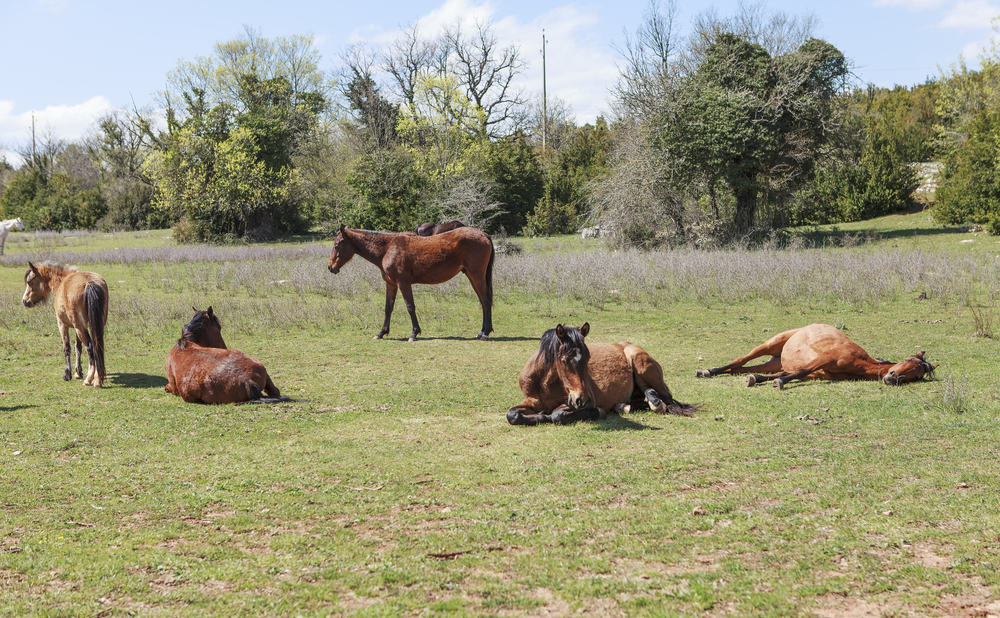
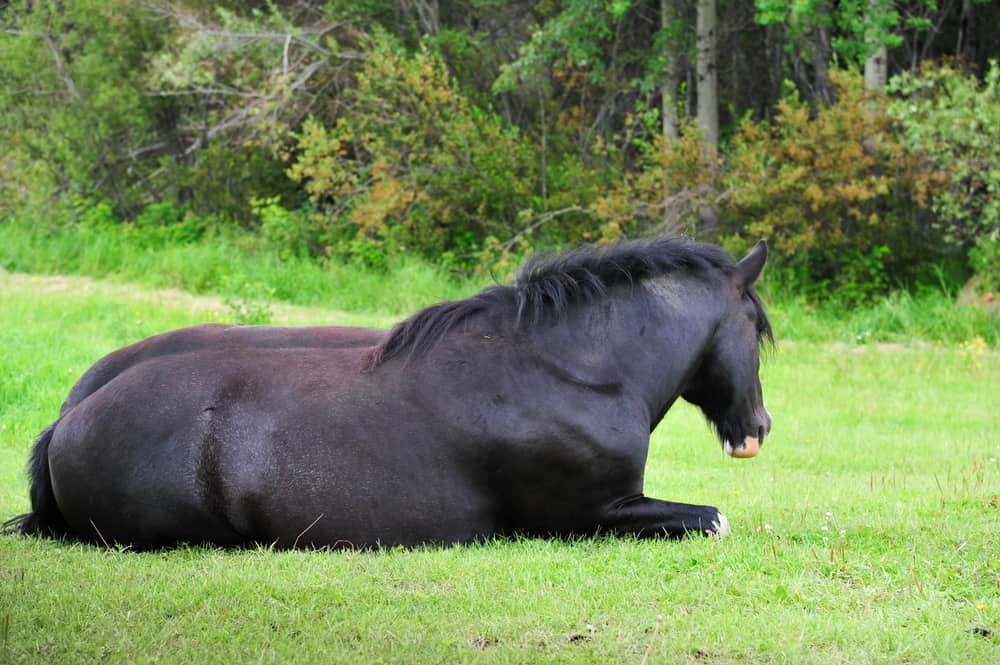
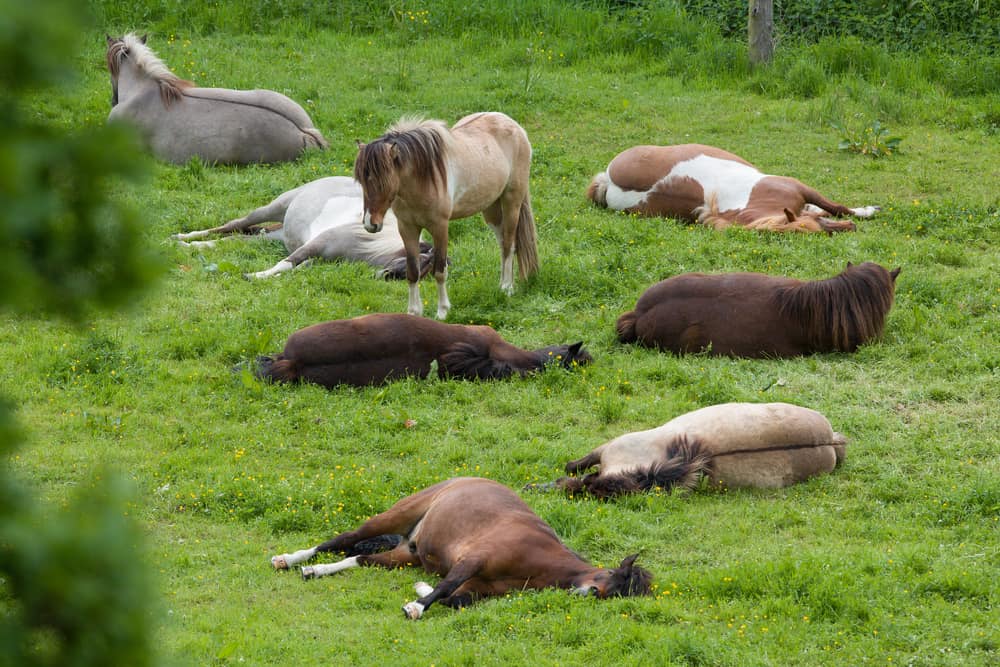
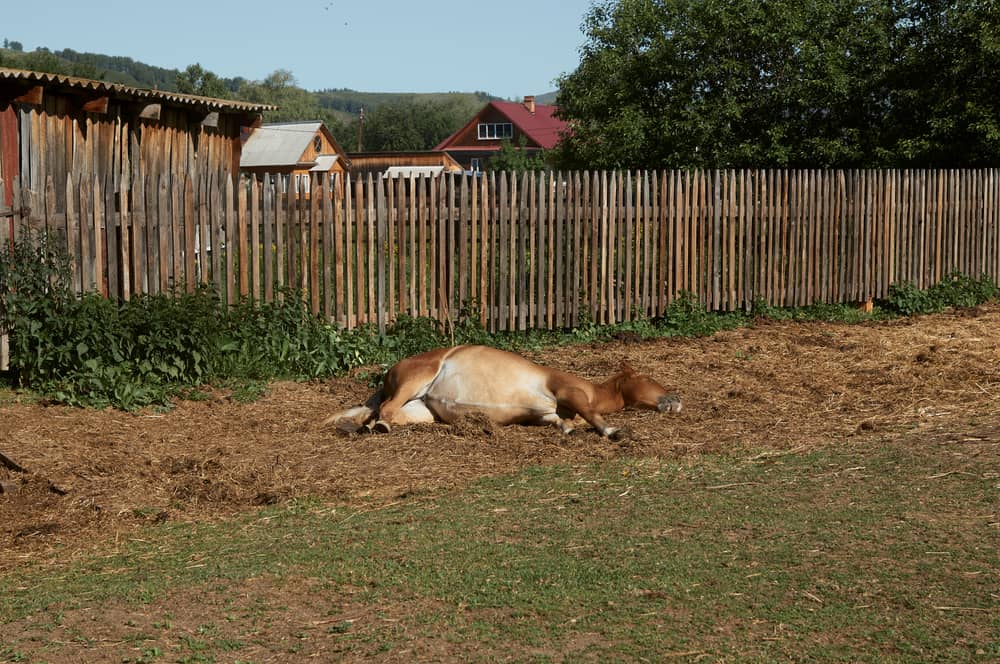
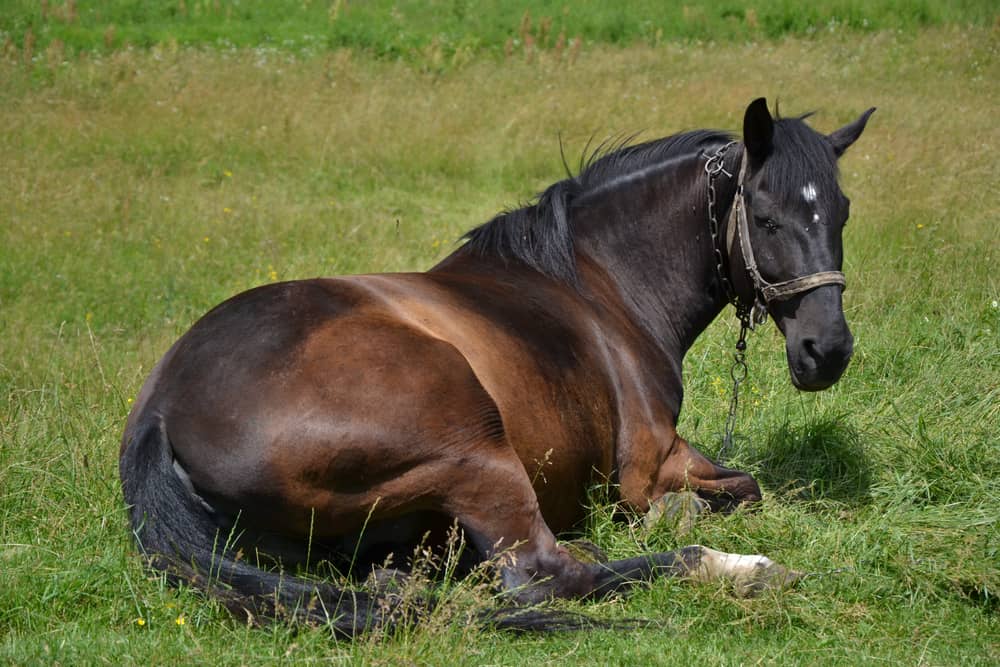
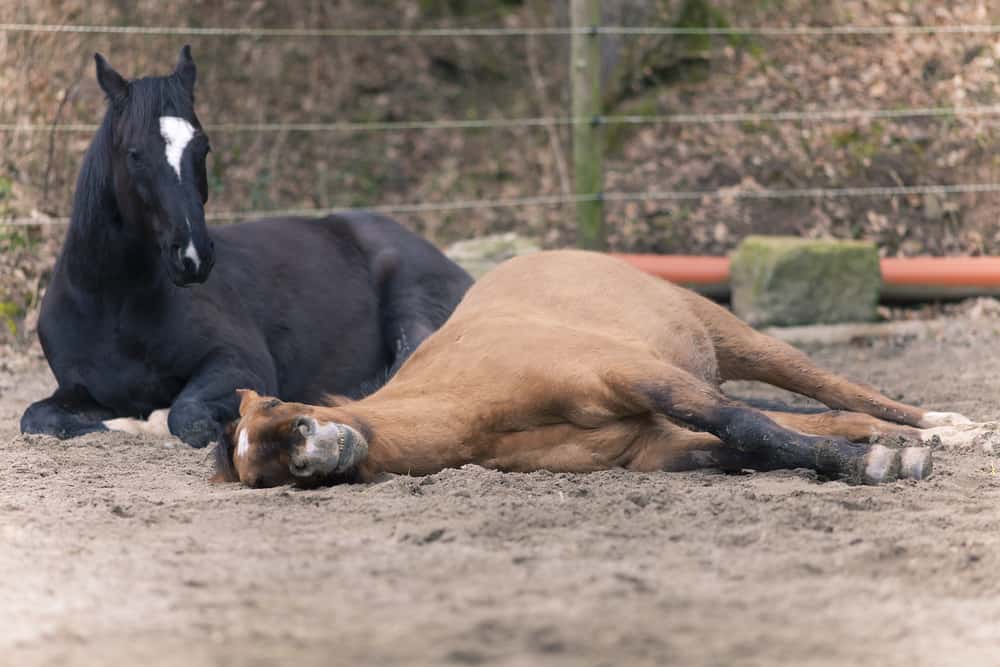
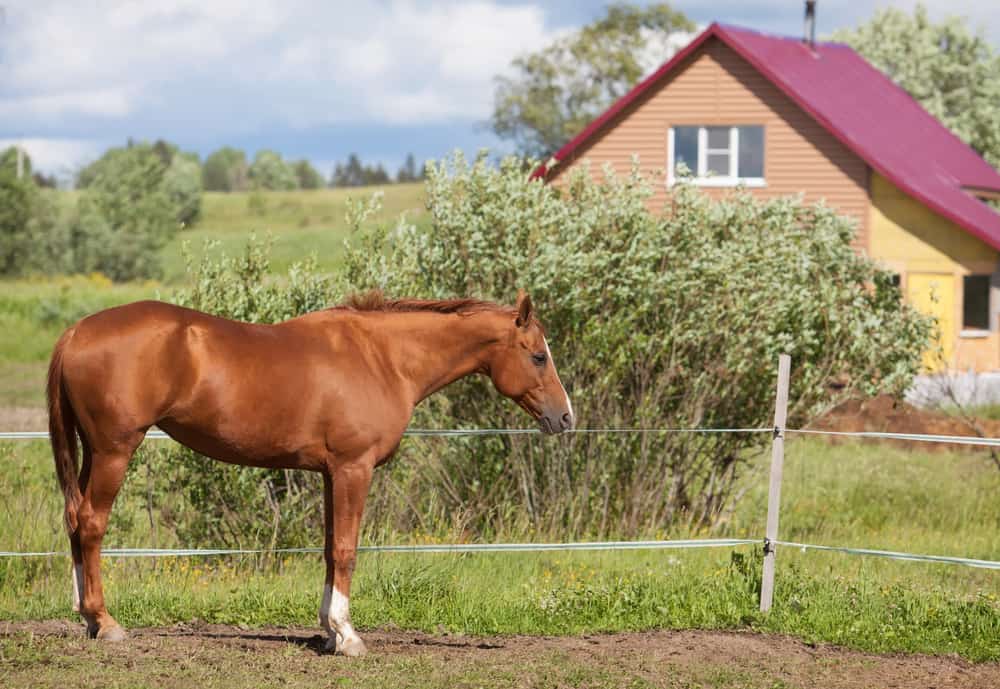
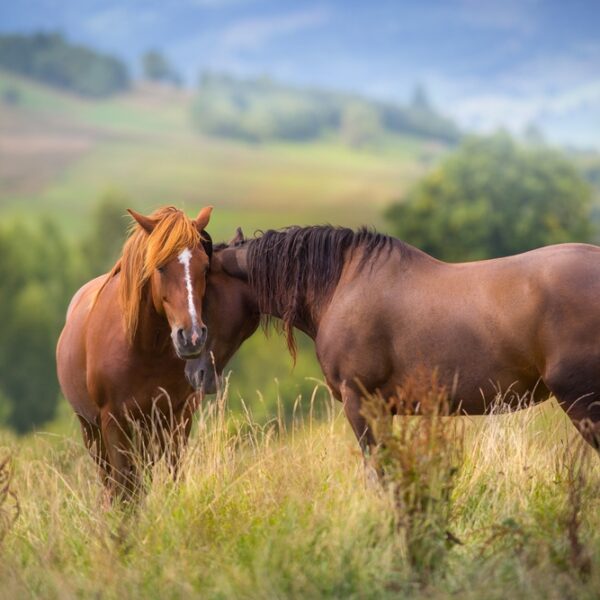
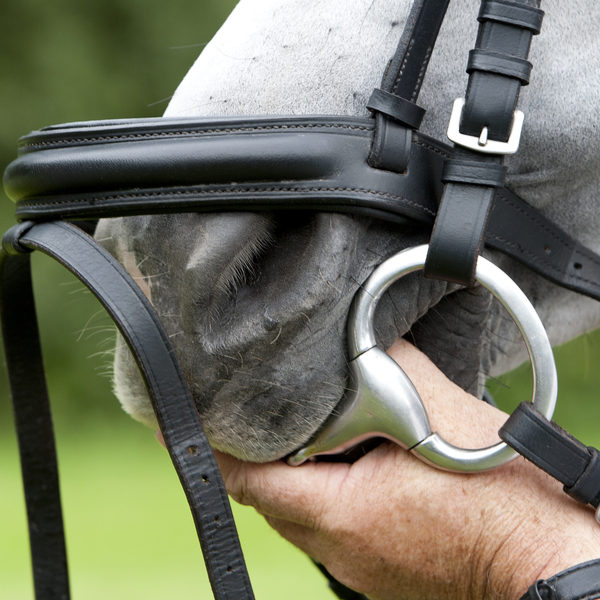
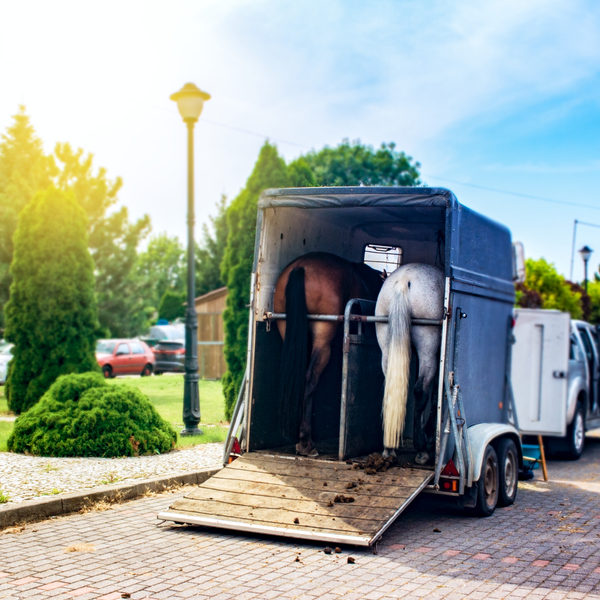

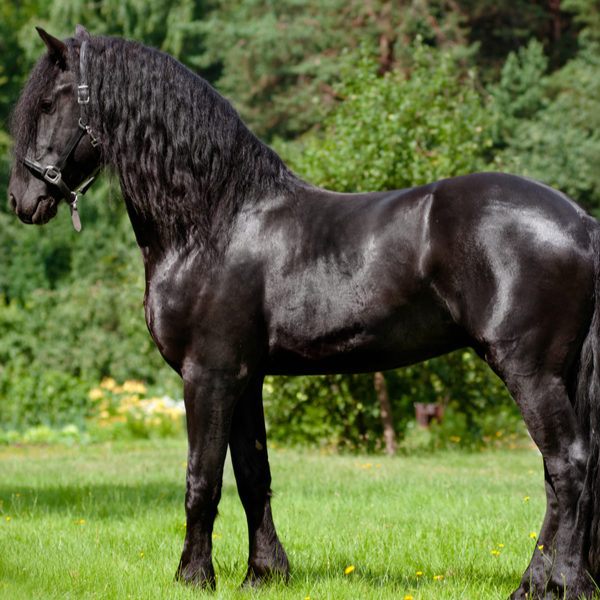
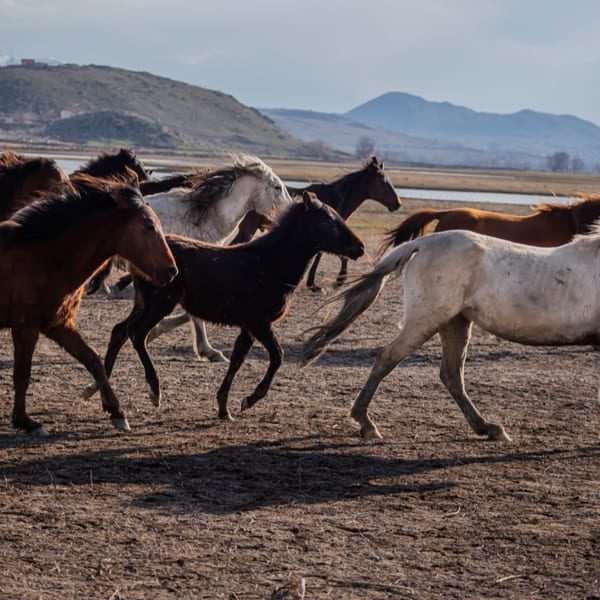
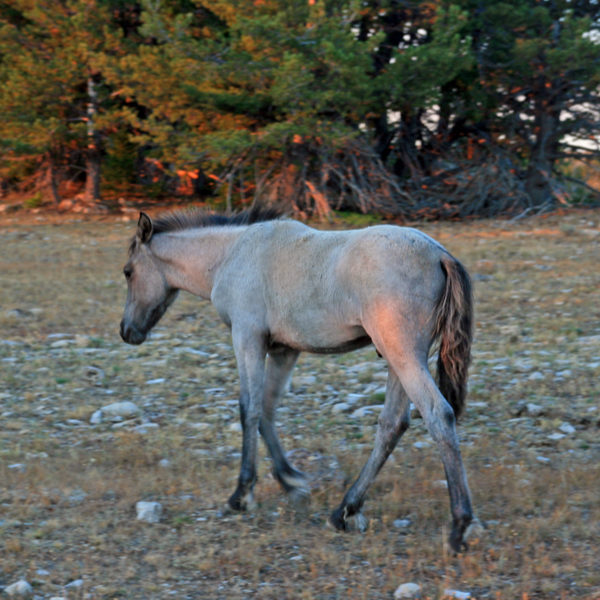
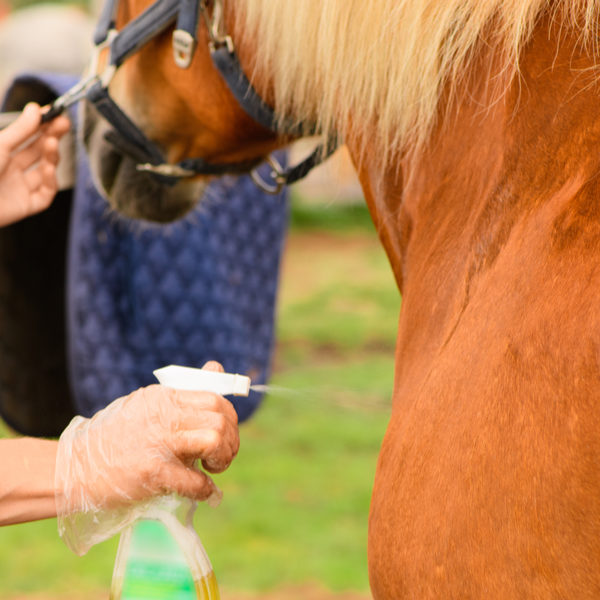
I love horses